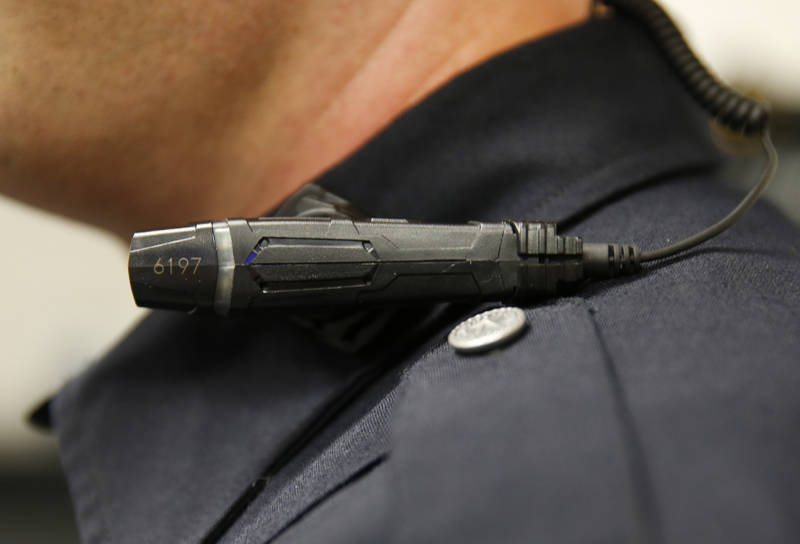The May 19 resignation of former Chief Greg Suhr threw that compromise into question. But, the jointly submitted final draft body camera policy from the mayor's office and the POA ends those concerns.
On pre-statement review, the final draft appears closer to what accountability advocates wanted than the union's previous position to generally allow officers to view their camera footage, even in shooting cases, and even before being interviewed.
Here's the draft language laying out circumstances in which SFPD officers would not be allowed to view body camera, or any footage:
Following any (1) officer-involved shooting, (2) in-custody death, or (3) criminal matter, any subject officer shall be required to provide an initial statement before he or she reviews any audio or video recording.
The initial statement by the subject officer shall briefly summarize the actions that the officer was engaged in, the actions that required the use of force, and the officer’s response. The statement shall be distinct from the “public safety statement.”
After providing an initial statement, the subject shall have an opportunity to review any audio or video recordings depicting the incident with his or her representative or attorney prior to being subject to an interview.
This new, distinct "initial statement" may preserve officers' perspective of an incident unaltered by reviewing footage. It's an officers' state of mind, regardless of what video later reveals, that helps define the legal standard for justified uses of force.
The "public safety statement" is a set of mandatory questions an officer involved in a critical incident must answer at the scene if ordered by a supervisor. The questions seek information on any threat that may still exist but avoid seeking officers' reasons for using force.
"Rank-and-file police officers value transparency, and we welcome body cameras as an effective tool to improve public safety and strengthen accountability," Halloran wrote in a statement issued Tuesday. "Body cameras are not a panacea, but they provide a key record of events for use in investigations -- and are a clear signal to our community that police officers hold ourselves to the highest standards."
Body camera deployment was one of several major changes to the SFPD initiated by former Chief Greg Suhr that have landed before interim Chief Toney Chaplin, who said the cameras would be a major focus for him upon taking over the position.
"This is a game changer for the San Francisco Police Department and moves us firmly into 21st Century Policing,” Chaplin said in a written statement. “We welcome this agreement with the San Francisco Police Officers Association and we look forward to the deployment of the cameras as soon as possible.”
